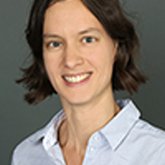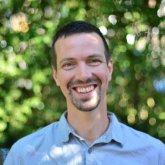PhD Candidate in Assessing the effects of water management on hydrological processes
The University of Twente wishes to increase the number of women in the faculty to have a more balanced staff profile. During all phases of the selection process, we will therefore prioritise selecting women who fit the profile.
Climate change intensifies droughts, heatwaves, water scarcity, and flooding, increasing the urgency for sustainable and adaptive water management strategies. This project aims to investigate how water management interventions influence hydrological fluxes and storages by integrating physically based hydrological modelling with observational data. The research involves setting up an integrated hydrological model that collects both vertical and lateral hydrological processes, from the atmosphere through soil, surface water, and groundwater systems. By validating model simulations with in-situ measurements (e.g., soil moisture, groundwater levels, surface water) and geospatial datasets (e.g., thermal infrared imagery), the study aims to establish a robust foundation for understanding hydrological dynamics and evaluating the effects of water management measures. The validated model will then be used to assess the effectiveness of various water management strategies under a range of climate conditions, supporting the development of resilient and sustainable solutions for agriculture-dominated landscapes under climate stress.
Your research will focus on setting up an integrated hydrological model for a selected agriculture-dominated study area to simulate key hydrological processes and water management measures, with model calibration and validation using observational data. You will test the representation of various water management measures in the model (e.g., weirs, controlled drainage, retention ponds) and assess the impacts of water management measures and land-use changes on soil moisture, evapotranspiration, groundwater, and surface water under varying climate conditions, identifying suitable adaptation strategies.
You will present your research at appropriate meetings, workshops and conferences, publish results in scientific journals and conference proceedings, contribute to teaching on topics related to your work, and supervise and mentor MSc students as needed.
Information and application
For more information about the position, you can contact Dr Franziska Tügel (email: franziska.tuegel@utwente.nl). You are also invited to visit our homepage.
For questions about working and living in the Netherlands, please consult the official website of the Netherlands Government or the website of the Expat Centre East Netherlands.
Screening is part of the selection procedure.
Please submit your application before August 8th, 2025. Your application should include:
- A motivation letter (maximum one page of A4), emphasising your specific interest, qualifications, and motivation to apply for this position
- Curriculum Vitae (including the names and contact information of two references and – if applicable – a publication list)
- A list of relevant courses attended (including grades)
- A short description (about 250 words) of your last significant result (MSc thesis/final project report/EngD thesis).
First-round (online) interviews are scheduled for August 28th, 2025. A second-round interview might take place about a week after the first-round interview.
About the department
The Department of Water Resources (ITC-WRS) studies water systems and their relation with land use and climate through remote sensing, field instrumentation and modelling.
The Chair group of Multidisciplinary Water Management (ET-MWM) develops and applies holistic approaches which promote sustainable and resilient management of water systems.
About the organisation
The Faculty of Geo-Information Science and Earth Observation (ITC) provides international postgraduate education, research and project services in the field of geo-information science and earth observation. Our mission is capacity development, where we apply, share and facilitate the effective use of geo-information and earth observation knowledge and tools for tackling global wicked problems. Our purpose is to enable our many partners around the world to track and trace the impact – and the shifting causes and frontiers – of today’s global challenges. Our vision is of a world in which researchers, educators, and students collaborate across disciplinary and geographic divides with governmental and non-governmental organisations, institutes, businesses, and local populations to surmount today’s complex global challenges and to contribute to sustainable, fair, and digital societies.





